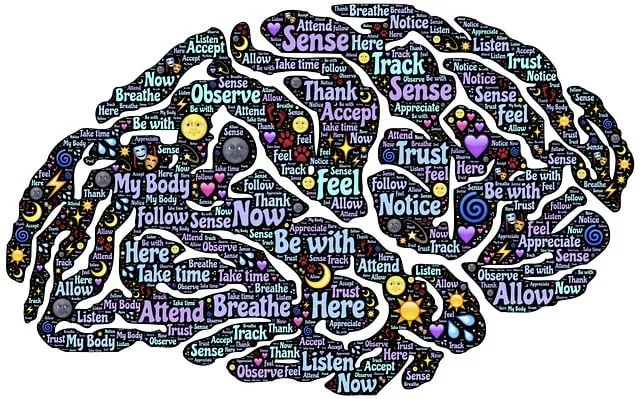Mental illness diagnosis accuracy is a pressing healthcare concern in Denver, where access to quality mental health services is limited. High misdiagnosis rates result from subjective symptoms and complex conditions, exacerbated by personal biases and symptom overlap. To address this issue, Kaiser and other institutions are implementing innovative strategies: community outreach promoting mental health literacy, integrating Mind Over Matter principles for stress management, and advanced assessment techniques. These efforts aim to improve diagnosis accuracy, ensuring tailored treatments for patients, especially younger generations facing stigma and delays in seeking help. By focusing on these approaches, organizations like Kaiser can enhance the quality of care provided by their therapists in Denver.
Mental illness diagnosis accuracy is a critical aspect of patient care, yet current methods face significant challenges. This article explores the current state of mental health diagnosis in healthcare, focusing on the prevalence of misdiagnosis and its detrimental effects on patients. We delve into efforts made by Kaiser (Denver) to enhance assessment practices, including advanced training programs, evidence-based approaches, and technological innovations. Additionally, we discuss the vital role therapists play in ensuring accurate diagnoses, emphasizing the need for qualified professionals and continuous education among practitioners.
- The Current State of Mental Illness Diagnosis in Healthcare
- – Exploring the challenges and limitations of current diagnosis methods
- – Prevalence of misdiagnosis and its impact on patient care
The Current State of Mental Illness Diagnosis in Healthcare

Mental illness diagnosis accuracy is a critical aspect of healthcare that demands continuous improvement. Unfortunately, misdiagnosis rates remain high, often due to the subjective nature of symptoms and the complexity of mental health conditions. The current state of mental illness diagnosis involves a combination of clinical assessments, patient self-reporting, and sometimes, inadequate training among healthcare providers. This is particularly relevant in areas like Denver, where access to quality mental health services is a growing concern. Many institutions, including Kaiser, are recognizing the need for enhanced diagnostic tools and strategies.
Efforts to improve diagnosis accuracy often revolve around integrating community outreach programs that promote mental health literacy and early intervention. Implementing Mind Over Matter principles, which focus on stress management and resilience, can also aid in identifying subtle symptoms. By combining these approaches with advanced assessment techniques, healthcare providers in Denver can strive for more precise diagnoses, ensuring patients receive the most effective treatment tailored to their unique needs. This is crucial in addressing the growing mental health crisis, especially among younger generations who may face stigma and delays in seeking help.
– Exploring the challenges and limitations of current diagnosis methods

Mental illness diagnosis, while crucial for effective treatment, faces significant challenges and limitations in current methods. One major hurdle is the subjectivity involved; diagnoses often rely on self-reporting by patients, which can be influenced by personal biases or difficulty articulating symptoms, leading to misdiagnosis or delayed treatment. Additionally, many mental health conditions overlap in presenting symptoms, making distinction between them complex, especially for less experienced professionals.
The impact of these limitations is felt by individuals seeking therapy and support, as inaccurate diagnoses may lead to inappropriate treatments or a lack thereof. This underscores the need for innovative approaches, such as integrating advanced assessment tools alongside traditional methods, to enhance diagnosis accuracy. Organizations like Kaiser, with their focus on healthcare excellence, can play a pivotal role in this regard, ensuring that patients in areas like Denver have access to high-quality therapists and cutting-edge diagnosis techniques. Beyond this, Public Awareness Campaigns Development and Emotional Well-being Promotion Techniques can empower individuals to recognize symptoms and seek help promptly, ultimately improving diagnosis rates and treatment outcomes.
– Prevalence of misdiagnosis and its impact on patient care

Misdiagnosis in mental health is a significant concern, often leading to delayed or inappropriate treatment for patients in Denver seeking therapy. Studies show that various factors contribute to this issue, including the complexity of symptoms and the vast array of potential disorders. Unfortunately, this prevalence has severe consequences for patient care and outcomes. When a client is misdiagnosed, it can result in ineffective treatment plans, causing further distress and potentially prolonging their journey towards recovery.
For instance, someone struggling with both anxiety and depression might be diagnosed with only one of these conditions. Without an accurate diagnosis, the patient may not receive the tailored support they need for both aspects of their mental wellness. This is where organizations like Kaiser can play a vital role in improving accuracy. They can invest in training programs for therapists, integrate Stress Management Workshops, and promote Anxiety Relief strategies to ensure professionals are equipped to navigate complex cases effectively. Such efforts will ultimately benefit folks seeking therapy by fostering more effective and efficient treatment, especially when considering the quality of care provided by Kaiser therapists in Denver.
Mental illness diagnosis accuracy is a critical aspect of healthcare that demands continuous improvement. The current state, marked by challenges in method and high rates of misdiagnosis, highlights the need for enhanced approaches. By leveraging advanced assessment tools and fostering specialized training for healthcare professionals, especially in renowned facilities like Kaiser, we can expect better outcomes. For those seeking support in Denver, ensuring access to accurate diagnoses and effective treatments is paramount, as it directly impacts the well-being of individuals navigating their mental health journeys.






